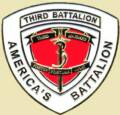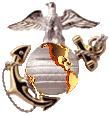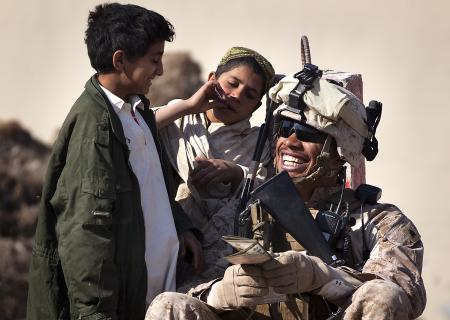


MCB Hawaii – Kaneohe Bay
By Cpl Reece Lodder 5/15/2012
GARMSIR DISTRICT, Afghanistan — In the fall of 2004, the Marines and sailors of 3rd Battalion, 3rd Marine Regiment began a challenging journey that took them to the Middle East and central Asia.
They served on six combat deployments in the years since then — three each to Afghanistan and Iraq. They fought, sacrificed and honored their 16 fallen brothers.
Seven months ago, the men of ‘America’s Battalion’ began their final Afghanistan deployment to Helmand province’s Garmsir district. Now they’re finally coming home.
The battalion replaced fellow Hawaii-based 1st Bn., 3rd Marines in Garmsir last November. They inherited an 80-kilometer long battlespace surrounding the Helmand River, previously the scene of intense fighting between insurgents and coalition forces.
In 2008, insurgents began heavily engaging British forces based in Garmsir in an attempt to gain control of the district. With a surge of Marines from the
24th Marine Expeditionary Unit, they stabilized the district and returned its control to coalition forces. In May 2009, the British trans-ferred Garmsir to 2nd Bn., 8th Marines, beginning the line of seven Marine battalions to serve here.
Fighting was minimal when ‘America’s Battalion’ arrived in Garmsir. Despite persisting in surrounding districts, insurgent activity in Garmsir had largely been quelled by Marines and Afghan forces.
But their work was far from done in light of the nearing transition of lead security responsibility in Garmsir from Marines to Afghan forces.
Major Sean Carroll, the 3rd Bn., 3rd Marines executive officer, said ‘America’s Battalion’ arrived in Garmsir during a critical phase in the 10-year Afghan campaign. While past battalions had focused on clearing and stabilizing Garmsir, their role was to help build its future.
“We needed to expand our battlespace, retrograde gear, and build, transfer and close positions while verifying the Afghan forces were ready to defend Garmsir as a whole,” said Carroll, a San Diego native.
Carroll said the battalion demilitarized or transferred 39 of its 42 positions to Afghan forces, and retrograded and redeployed more than $140 million dollars of gear from Afghanistan to the U.S.
While the future of Garmsir lay in the growth of Afghan-led security, its forces were simply “holding fast,” said Lt. Col. Matthew Palma, the 3rd Bn., 3rd Marines commanding officer.
Afghan forces augmented Marine patrols but insufficient manpower prevented them from holding positions on their own and conducting unpartnered operations. The Afghan National Army maintained a single kandak, or battalion, spread thinly throughout the large district. The Afghan National Police force, approximately 300 strong yet understaffed, was “immature, corrupt and filled with insurgents,” said Palma, a native of Bristol, R.I.
He said the Marines identified the Afghan police as Garmsir’s “bid for success,” and replaced the previous 25-man Police Mentoring Team with 210 infantrymen from Kilo Company, 3rd Bn., 3rd Marines.
Together, they identified and attacked corruption in the existing police force and partnered on operations and security patrols. Two Marine-led police academies grew the Afghan Local Police from 120 to 369 patrolmen, said Sgt. Phillip Kilgore, a PMT advisor and 29-year-old native of Cincinnati. In total, Garmsir’s police force doubled to more than 600.
A second ANA battalion — 6th Kandak, 1st Brigade, 215th Corps — moved to Garmsir from Helmand’s Marjah district in February. They began operating in southern Garmsir, augmenting 2/1/215 based in the northern portion of the district.
The bolstered ANA force expanded to positions throughout Garmsir and operated under the watch of Marine mentors. They progressed toward independent operations, Carroll said, “building their confidence and beginning to take the lead under our watch.”
As the Afghan forces grew, citizens of Garmsir saw their impact on security. Their confidence in the abilities of their forces manifested in the numerous tips leading to the location and removal of 32 improvised explosive devices and 10 caches of weapons and other insurgent materiel.
Far south in Garmsir’s eastern desert bordering Pakistan, Afghan Border Police teamed with Marines to disrupt the movement of drugs and insurgent material into Garmsir using targeted helicopter insertions.
“We had some successes and some misses, but this disruption enabled the seed of Afghan governance to germinate,” Palma said. “The people of Garmsir have known nothing but war their entire lives. The presence of their forces in ungoverned places allowed them to see freedom and democracy … a better life.”
On April 17, the people of Garmsir helped strengthen their own government by voting in free, Afghan-led district community council elections. More than 2,200 votes were cast to fill all 35 DCC seats, including six new seats in the Safar and Banadar regions, areas of southern Garmsir that previously lacked representation by Afghan government. The elections were held without incident.
“Before the elections, the people of southern Garmsir didn’t see the benefits of government,” Palma said. “They had water problems and a stagnant economy. Education and health issues weren’t addressed. Now, the government works for them. They have a voice and better access to the resources they need.”
As security and governance increased, Garmsir’s economy grew. In past years, its economic infrastructure had struggled to develop due to the people’s dependence on subsistence agriculture as their main source of income, Palma said. Safely protected by their forces, local shoppers and business owners returned to commerce centers like Safar Bazaar, which grew from approximately 200 to 400 shops since November 2011.
“When we walked through any of Garmsir’s bazaars on patrol, all of the shops were open,” Palma said. “The people weren’t intimidated by insurgents; they were free to shop or do business.”
The shift is radically different from Garmsir in 2008, when the district was still run by insurgents. Under their relentless rule, schools were closed, commerce was controlled, and the people were oppressed.
Today, Garmsir is on the cusp of freedom. Twelve schools have been constructed and opened in the past seven months. Citizens safely travel to their bazaars to purchase and sell goods. District security forces are ready to provide the people of Garmsir the security they’ve long desired.
“It took the entirety of our deployment, but the Afghan forces are completely capable of conducting operations independent from Marines,” Palma said. “Now they’re telling us we’re simply slowing them down.”
For the past seven months, the Marines and sailors of ‘America’s Battalion’ have labored to improve Garmsir’s future. As they return home to safety and the embraces of loved ones, their replacements with Kilo Co., 3rd Bn., 8th Marines are at the beginning of their mission.
The Kilo Co. Marines haven’t started from scratch in Garmsir. The work of their predecessors has produced an Afghan force willing and able to provide security for their district – which was included in the recent announcement by President Hamid Karzai marking the next phase of transition across Afghanistan.
Kilo Co. looks to build on the progress made by thousands of Afghan and coalition forces. Their sacrifices will help the people of Garmsir determine their own future.
“This is the best opportunity the Afghan people have had in 30 years to choose the life they want for the next 30,” Palma said. “This is their chance to shape their future in the way they desire, rather than in the way someone else tells them it needs to be. They can take the freedom they’ve received and run with it, or they can regress.”
Editor’s Note: Third Battalion, 3rd Marine Regiment, is currently assigned to Regimental Combat Team 5, 1st Marine Division (Forward), which works in partnership with the Afghan National Security Forces and the Government of the Islamic Republic of Afghanistan to conduct counterinsurgency operations. The unit is dedicated to securing the Afghan people, defeating insurgent forces, and enabling the ANSF assumption of security responsibility within its operations in order to support the expansion of stability, development and legitimate governance.

Photo: Cpl. Reece Lodder
U.S. Marine Sgt. Marcus Martin, a squad leader with Guard Force Platoon, 3rd Battalion, 3rd Marine Regiment, and 32-year-old native of Charlottesville, Va., practices Pashto with Afghan boys while providing security outside the Garmsir district center here, Nov. 28, 2011. In November 2011, the Marines and sailors of 'America's Battalion' began their final Afghanistan deployment to Helmand province's Garmsir district. After six combat deployments to Afghanistan and Iraq since 2004, they're finally coming home. During their seven months in Garmsir, they advised and developed Afghan forces preparing to take the lead in providing security for the district. As the Afghan forces grew in number and capability, commerce expanded and successful district community council elections were held in April 2012. 'America's Battalion' transferred control of coalition positions in Garmsir to Kilo Co., 3rd Bn., 8th Marines, May 14.